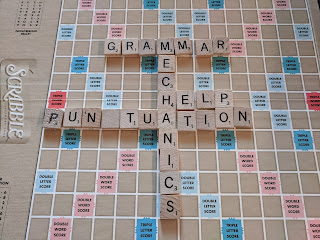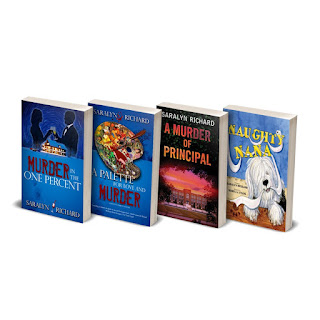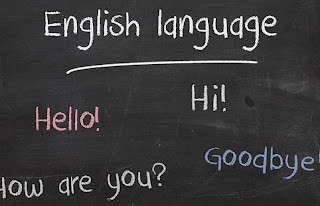Untitled Post
What’s Happening to the English Language?
by Saralyn Richard
I’ve wanted to be a writer for as long as I can
remember. My parents encouraged me to be an English teacher, instead. So, I
spent several decades reading and grading other people’s writing. I even taught
journalism and creative writing—to teenagers and later to seniors (aged 50+).
Although teaching kept me way too busy to write, it also kept me in the
universe of writers and writing. I was like a frustrated chef who had all the
best recipes and ingredients but couldn’t enter the kitchen.
Several
years ago, I came to a crossroads in my education career. By then I’d moved
into administration and school improvement consulting, and the constant travel
had become too much. I stepped back from on-site consulting and began doing
what I’d always loved, writing. In this case, it was technical
writing—curricula, white papers, articles, proposals, and grants.
It
was a joy to flex my writing muscles. I had a blast selecting the best words,
sentence structures, and arguments. The rules of grammar and mechanics rolled
back into my frontal lobe as if they had never left.
Photo courtesy of Unsplash.com
Soon
I was ready to try my hand at fiction, and I took great delight in practicing
other tools of the trade, such as imagery, figures of speech, and dialogue.
Grateful for a traditional education in grammar and composition, which even
included diagramming sentences, I forged ahead with fulfilling my dream
deferred.
What
I didn’t realize is how much the English language had relaxed while I was busy doing
classroom duty. When had the Oxford comma controversy reared its ugly head?
When had use of “their” as a singular possessive pronoun come into acceptable
use? How had adverbs, those lovely -ly descriptors, become persona non grata?
I began seeing non-words like “supposably” and “irregardless” cropping up in articles
that had supposedly been edited and vetted for publication. And when did
“blonde” become an adjective?
Fortunately,
my first publisher was as picky as I was, and the few times we clashed over how
to punctuate something, we let the Chicago Manual of Style serve as
referee, and most of the time, Chicago sided with me. I did go to the mat a few
times over such things as where the apostrophe should go in a possessive of a
proper name ending in “s.”
Photo courtesy of Unsplash.com
If I
sound like a hundred-year-old spinster schoolteacher, let me assure you that is
not the case. I can waltz and fox trot, but I can also hit the whoah. I’m sure
everyone reading this post has certain pet peeves regarding the English
language. What are yours?
Saralyn Richard is the author of A MURDER OF
PRINCIPAL, the Detective Parrott mystery series, and the children’s book,
NAUGHTY NANA. Follow her on social media and on her website here.





